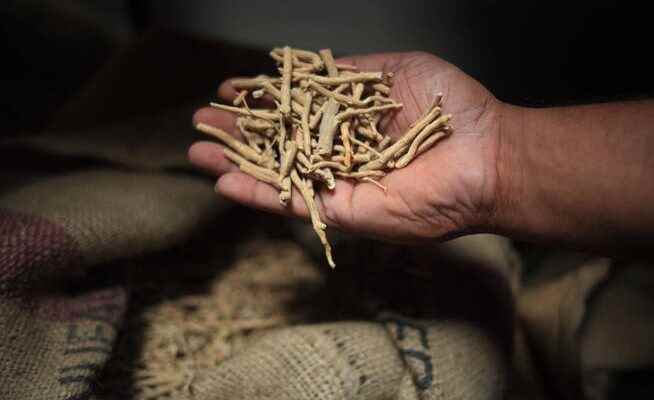Again and again, promises are tempting that only a special substance can alleviate or even heal many different ailments. As a doctor, our columnist is often confronted with this. He advises caution, but also curiosity.
The dried roots and leaves of the sleeping berry, in Sanskrit ashwagandha, are used in Ayurvedic medicine to treat various ailments such as inflammation or insomnia.
One of the advantages of being a doctor is that patients broaden their horizons every day. In this way, one is kept up-to-date on trends and methods that play no role in scientific medicine. What is at best dismissed as an aside at official training events can be an important beacon of hope for many people with health disorders. This applies in particular to chronic or even fatal diseases. By definition, conventional medicine cannot offer a cure in these cases.
Over the years I have become familiar with acronyms such as MSM (Methylsulfonylmethane) and MMS (Miracle Mineral Supplement). I would hardly have come across terms like gotu kola or ashwagandha without corresponding information from patients. Due to a lack of experience with the substances in question, I can usually not comment on their effectiveness. However, I think it is inappropriate to reflexively speak of humbug in such discussions.
Undoubtedly, millions in sales are achieved with dubious, useless, and in the worst case even dangerous “drugs”. On the other hand, plants such as Ginkgo biloba, Hypericum perforatum or Vitex agnus-castus have now secured a permanent place in serious medical practice.
Beware of all-encompassing promises of salvation
Of course, in the age of the often non-transparent Internet mail order business, great caution is required for many products. It becomes highly suspicious when exaggerated expectations are aroused with an agent. If you enter the abbreviations MSM or MMS in combination with medicine on the Internet, you will be baited with promises of salvation for almost every conceivable ailment. The spectrum ranges from rheumatism to skin diseases, digestive disorders, immune deficiencies, cardiovascular diseases to mental disorders and, of course, cancer.
In such cases, I usually allow myself to confront the patient with simple questions. Is it realistic to be able to cure the entire spectrum of human ailments with a single remedy? How is it possible that there are still so many sick people when there is a universal panacea available?
With the second question in particular, one can unexpectedly find oneself on difficult terrain. Powerful pullers behind the scenes would deliberately denigrate valuable therapies or suppress information about them because health for everyone would be contrary to their economic and political interests, one quickly hears. Of course, such statements cannot be refuted.
Data generates knowledge and trust
At its core, it is probably a question of who you put your trust in. Much speaks for science. In medicine in particular, scientific findings do not represent absolute truths, but are in constant flux. But they are based in large part on solid, verifiable data.
However, science-based medicine continues to be humble. Because even in the 21st century, there are more things between heaven and earth than our school wisdom can dream of.
In the weekly column “Main thing, healthy” the authors take a personal look at topics from medicine, health, nutrition and fitness. Texts that have already been published can be found here.
Follow the science editors of the NZZ Twitter.
